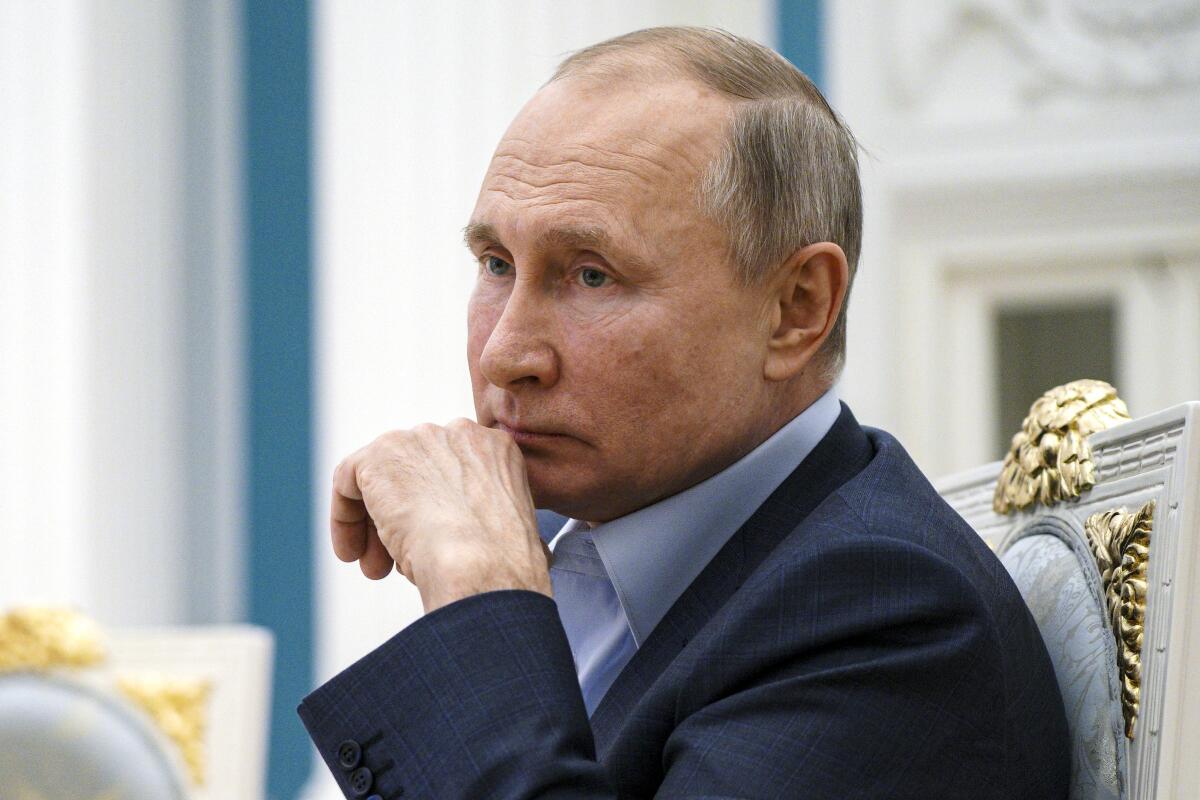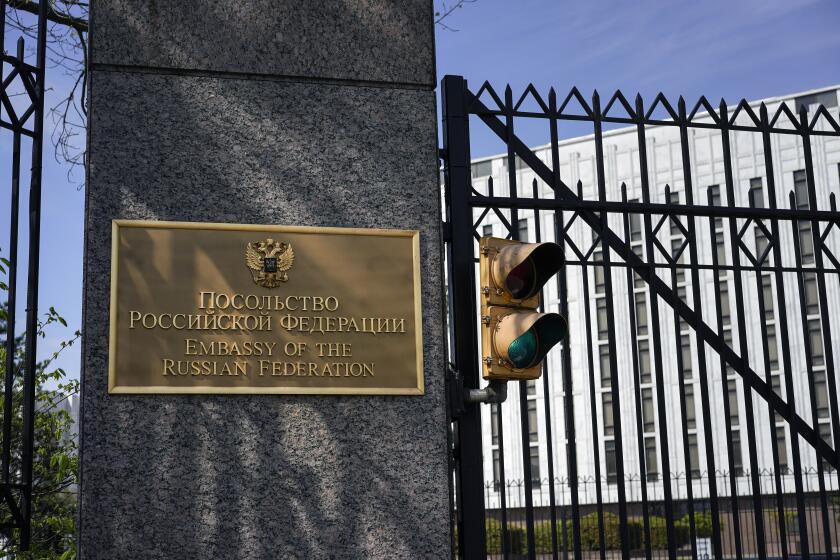Russia to expel 10 U.S. diplomats in response to Washington’s expulsions, sanctions

- Share via
MOSCOW — Russian Foreign Minister Sergei Lavrov said Friday that Moscow will order 10 U.S. diplomats to leave Russia in a retaliatory response to Washington’s expulsion of Russian diplomats and imposition of new sanctions.
Lavrov also said that Moscow will add eight U.S. officials to its sanctions list and move to restrict and stop the activities of U.S. nongovernmental organizations from interfering in Russia’s politics.
He added that while Russia has a possibility to take “painful measures” against American businesses in Russia, it wouldn’t immediately move to do that.
The moves follow a barrage of new sanctions on Russia announced this week by the Biden administration, which blamed Moscow for interfering in the 2020 U.S. presidential election and involvement in the SolarWinds hack of federal agencies. Russia denies those allegations.
The U.S. on Thursday ordered 10 Russian diplomats expelled, targeted dozens of companies and people, and imposed new curbs on Russia’s ability to borrow money.
But President Biden also called for deescalating tensions and held the door open for cooperation with Russia in certain areas. Biden said he told Putin in a call Tuesday that he chose not to impose tougher sanctions for now and proposed they meet in a third country in the summer.
Federal officials say former President Trump’s 2016 campaign gave polling data to a Russian political consultant, who gave it to Russian intelligence.
Putin’s spokesman Dmitry Peskov said the summit offer was being analyzed.
Konstantin Kosachev, the Kremlin-connected deputy speaker of the upper house of parliament, said that by hitting Russia with sanctions and proposing a summit at the same time, the U.S. sought to take a commanding stance.
“Russia’s consent would be interpreted as a reflection of its desire to soften the sanctions, allowing the U.S. to secure a dominant position at the meeting, while our refusal to meet would be a convenient pretext for more punitive measures,” Kosachev wrote on Facebook.
He argued that Russia should retaliate quickly and not rush to accept Biden’s summit offer.
“Revenge is a dish best served cold,” Kosachev wrote. “I believe the saying is quite adaptable to a situation when we talk not about revenge but a due answer to aggressive action by an opponent.”
More to Read
Sign up for Essential California
The most important California stories and recommendations in your inbox every morning.
You may occasionally receive promotional content from the Los Angeles Times.














